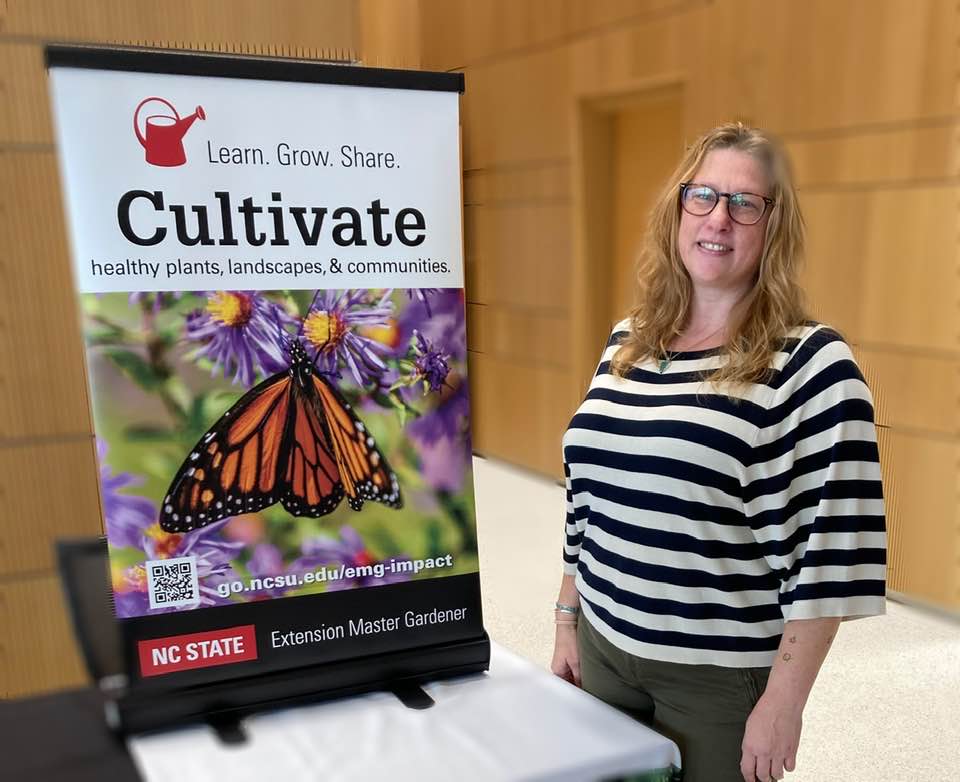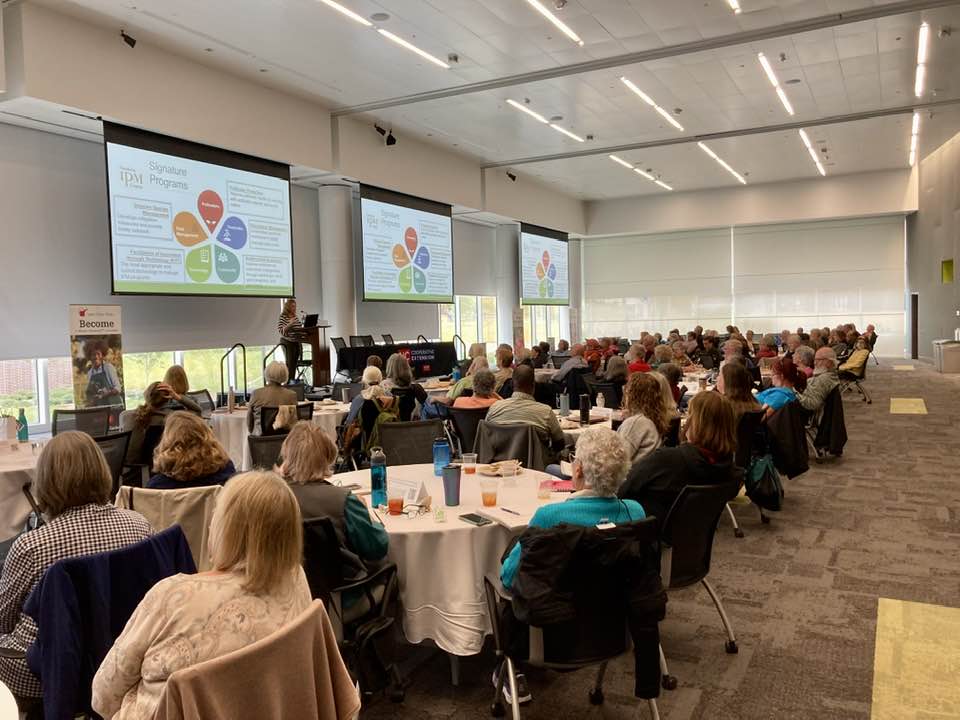Get the Buzz on Bees With Dr. Danesha Seth Carley
go.ncsu.edu/readext?899674
en Español / em Português
El inglés es el idioma de control de esta página. En la medida en que haya algún conflicto entre la traducción al inglés y la traducción, el inglés prevalece.
Al hacer clic en el enlace de traducción se activa un servicio de traducción gratuito para convertir la página al español. Al igual que con cualquier traducción por Internet, la conversión no es sensible al contexto y puede que no traduzca el texto en su significado original. NC State Extension no garantiza la exactitud del texto traducido. Por favor, tenga en cuenta que algunas aplicaciones y/o servicios pueden no funcionar como se espera cuando se traducen.
Português
Inglês é o idioma de controle desta página. Na medida que haja algum conflito entre o texto original em Inglês e a tradução, o Inglês prevalece.
Ao clicar no link de tradução, um serviço gratuito de tradução será ativado para converter a página para o Português. Como em qualquer tradução pela internet, a conversão não é sensivel ao contexto e pode não ocorrer a tradução para o significado orginal. O serviço de Extensão da Carolina do Norte (NC State Extension) não garante a exatidão do texto traduzido. Por favor, observe que algumas funções ou serviços podem não funcionar como esperado após a tradução.
English
English is the controlling language of this page. To the extent there is any conflict between the English text and the translation, English controls.
Clicking on the translation link activates a free translation service to convert the page to Spanish. As with any Internet translation, the conversion is not context-sensitive and may not translate the text to its original meaning. NC State Extension does not guarantee the accuracy of the translated text. Please note that some applications and/or services may not function as expected when translated.
Collapse ▲
Dr. Danesha Seth Carley at Extension Master Gardener College 2022. Image by Regina Kaiser, NC State.
Did you know honey bee pollination accounts for $15 billion in added crop value in the US? Dr. Danesha Seth Carley, Director of the National Science Foundation Center for Integrated Pest Management (CIPM) and Associate Professor in the Department of Horticultural Science at NC State University, shared this fact and other tips for protecting pollinators during her closing keynote address for Extension Master Gardener℠ College 2022.
During her presentation, Dr. Carley discussed the CIPM’s role in advancing integrated pest management, her passion for pollinators, and how her research, academic, and outreach programs focus on sustainable managed landscapes, specifically how landscapes can contribute to pollinator protection and habitat conservation.
We learned that in addition to honey bees, which were introduced to North America from Europe, there are over 4000 bee species native to our continent, with at least 500 bee species calling North Carolina home. Like honey bees, our native bees depend on the nectar and pollen found in flowers to feed themselves and their offspring. By planting a diversity of pollinator-friendly flowers in our yards and communities, we can help support and conserve pollinator populations.

Extension Master Gardener volunteers learn about pollinator protection. Image by Regina Kaiser, NC State.
Dr. Carley has a wealth of information about pollinators and how we can protect them. To learn more, take a peek at this wonderful piece from her presentation for the JC Raulston Arboretum: “Let’s Talk Pollinator Gardening”
Dr. Carley was one of several NC State faculty members, Extension specialists, and other leading experts to speak at EMG College, a continuing education conference that offers Extension Master Gardener volunteers the opportunity to learn the latest research-based information about gardening and environmental stewardship. Master Gardener volunteers take what they learn back to their communities, sharing it with community members through their volunteer work with N.C. Cooperative Extension. Connect with Master Gardener volunteers in your community.
The National Science Foundation Center for Integrated Pest Management was the platinum sponsor for EMG College 2022. Their support helped provide this opportunity for Master Gardener volunteers and Extension agents to increase their understanding of climate change impacts on plants and gardening and learn about strategies and resources they can use to educate others in their community through Extension outreach.
Read more about how CIPM is solving 21st century pest management challenges.


